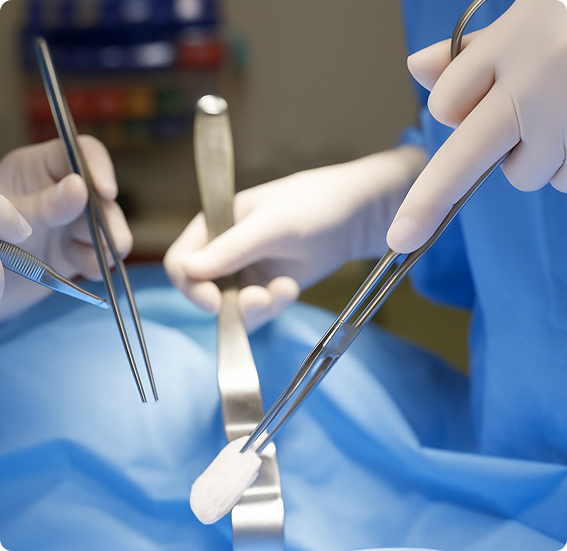
Sam is a minimally invasive surgical gynaecologist with a special interest in endometriosis, management of pelvic pain, pelvic organ prolapse, urinary incontinence, uterine fibroids and abnormal uterine bleeding.







Often common presentations are easily managed with surgical intervention, such as pelvic pain, pelvic organ prolapse, abnormal uterine bleeding and urinary incontinence. Where medical management or conservative approaches may not have improved symptoms, surgery can often lead to symptom relief and improved quality of life.


Endometriosis is a condition where the tissue similar to the lining of the uterus is found in areas outside of your uterus in the pelvis, such as your ovaries, bladder or even bowel. It affects 1 in 7 women in Australia and on average takes 6.5 years to be diagnosed with Endometriosis.

Hysterectomy is surgery to remove the uterus. This procedure involved removal of the cervix, uterus and sometimes tubes and ovaries depending on the age of the patient. Occasionally a partial hysterectomy will be indicated whereby the cervix needs to be left behind, this is however quite rare. Hysterectomy can be performed vaginally, laparoscopically or robotic assisted surgery.

Fibroids are typically non-cancerous (benign) growths of the uterus. This is a common condition that can be found in up to four out of five women in their lifetime. Surgical management of fibroids can be performed laparoscopically or hysteroscopically depending on the location of the fibroid.

Heavy menstrual bleeding is a very common presentation. There are a range of medical treatments that can be used, some are hormonally based and others are non-hormonal therapies. Surgical treatments can include operative hysteroscopy, endometrial ablation and sometimes even hysterectomy in women who have completed their families.

Urinary incontinence is when a person leaks urine or loses bladder control. Surgery for stress urinary incontinence can take on a variety of procedures and the procedure of choice that Sam offers is a Laparoscopic Burch Colposuspension. This is a minimally invasive procedure ‘key hole’ that is performed utilising stitch material to support your bladder neck.

Ovarian cysts are a collection of fluid on the ovary and can be classified as simple or complex. Ovarian cysts can be benign, pre-cancerous or cancerous. This procedure to remove an ovarian cyst is called an ovarian cystectomy and should be performed laparoscopically. This is a minimally invasive surgery that will allow for a quick recovery and minimal hospital stay.

Pelvic pain is a very common presentation to a gynaecologist and accounts for roughly 10% of referrals. Living with pelvic pain is not normal and no woman should have to normalise this concern. It is an incredibly complex condition, but there certainly are highly effective treatments out there once the diagnosis has been made.

Pelvic organ prolapse is defined as a weakness in the supporting structures which support either the bladder, uterus, or rectum and often results in a vaginal lump or heaviness being felt down below. Some types of vaginal prolapse lend themselves better to a vaginal approach, whereas others will benefit from a laparoscopic or robotic repair.

Sam is C-QuIP certified, this means he is able to confidently manage an abnormal cervical screening result that may warrant further investigation through a colposcopy. This procedure typically takes 10-15 minutes. It involves looking at your cervix under a microscope with use of solutions to identify any areas of concern that might require a biopsy.

Prior to your surgery you will have a detailed consultation to discuss the nature, length, surgical outcomes and associated risks with your surgery. You will be provided with some written information and surgical date.
Two days prior to your surgery you will be given the specific instructions on what time to arrive at the hospital and when you need to stop eating and drinking. Sam will see you prior to surgery to discuss any final questions or concerns you may have and then will review you on the post operative ward following surgery. A six week post operative appointment is recommended to discuss the outcome of surgery and any associated histology.
Every surgery is different. Typically surgery will involve a hospital admission, majority of surgeries will be same day or a single overnight stay. All aspects of surgery will be discussed at the time of your consultation with a review of the processes.
This is any surgery involving the female reproductive organs. This includes surgeries involving the ovary, fallopian tubes, uterus, cervix and vagina.
Minor gynaecological surgery would be considered a day only case, common examples include operative hysteroscopy which involves a camera looking inside the uterus. The procedures can take anywhere between 30 minutes to 1 hour and patients will go home the same day.